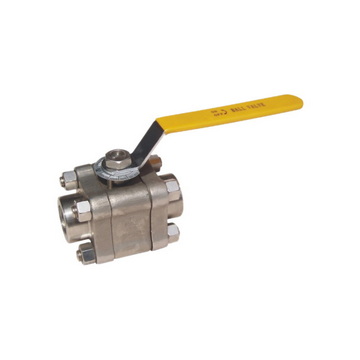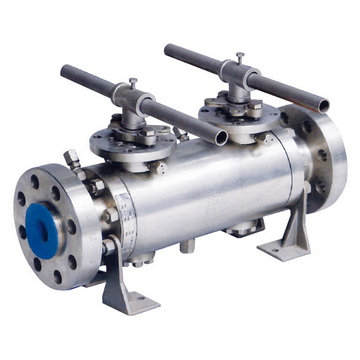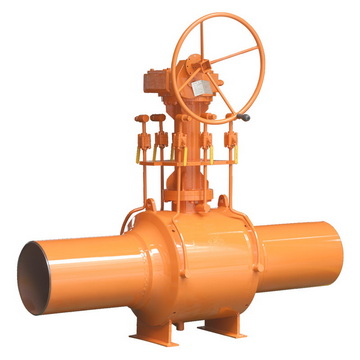What to Expect from a 12-Month Operational Warranty on Metal Seated Ball Valves
Content Menu
● The Critical Role of Metal Seated Ball Valves in Industry
● Detailed Insights into 12-Month Operational Warranty Coverage
>> Key Elements Commonly Covered Under Warranty
>> What Warranty Terms Typically Exclude
● Why a 12-Month Warranty Matters to Buyers and Operators
>> Building Confidence in Product Quality
>> Minimizing Financial Risks and Downtime
>> Strengthening Supplier-Client Relationships
● Best Practices to Maximize Valve Longevity and Warranty Validity
>> Operational Recommendations
● Common Warranty Issues and How They Are Resolved
>> Seat Leakage
>> Sticking or Operational Failure
● Frequently Asked Questions About the 12-Month Operational Warranty on Metal Seated Ball Valves
>> 1. What exactly does the 12-month operational warranty cover on a metal seated ball valve?
>> 2. Does the warranty cover damages caused by improper installation?
>> 3. How can users keep the warranty valid throughout the 12 months?
>> 4. What steps should be taken if a valve issue arises during the warranty period?
>> 5. Is it possible to extend the 12-month operational warranty?
As a leading manufacturer and OEM provider specializing in high-quality metal seated ball valves—including floating ball valves, trunnion-mounted (ear-pin) ball valves, and top-entry ball valves—our products serve critical sectors such as oil and gas (covering upstream, midstream, and downstream), seawater desalination, and offshore drilling platforms. Offering a 12-month operational warranty reflects our confidence in the reliability, robustness, and superior craftsmanship of each metal seated ball valve we produce.
In this comprehensive article, we will explore what a 12-month operational warranty on metal seated ball valves entails, what customers can expect regarding warranty coverage, how to maximize the valve's lifespan during warranty, and practical steps to protect your investment. We will also delve into typical issues covered under warranty claims and how these are handled to ensure smooth operation in demanding environments.

The Critical Role of Metal Seated Ball Valves in Industry
Metal seated ball valves distinguish themselves from soft-seated counterparts by using hard metal (such as stainless steel, tungsten carbide, or other alloys) for the sealing seats instead of polymer materials like PTFE. This design offers exceptional resistance to abrasive media, extreme temperatures (often from cryogenic to over 540°C), and high-pressure conditions, making them ideal in harsh applications.
Industries such as the petroleum and natural gas sector rely heavily on metal seated ball valves for their durability in upstream extraction sites, midstream pipelines, processing stations, and downstream refining facilities. Offshore applications, including drilling platforms and seawater desalination plants, also demand valves that withstand corrosion, mechanical wear, and continuous cycling without failure.
Due to these factors, metal seated ball valves are often considered premium products. While the initial investment can be higher than soft-seated valves, their longevity and reliability deliver better value over time, particularly when paired with a trustworthy 12-month operational warranty.
Detailed Insights into 12-Month Operational Warranty Coverage
A 12-month operational warranty typically protects valve buyers against manufacturing defects and early failures during actual service conditions. Unlike a simple calendar warranty, an operational warranty is often defined around the valve being actively used in agreed-upon operational parameters, such as pressure, temperature, and media type.
Key Elements Commonly Covered Under Warranty
- Material and Workmanship Defects: Any deviations in the valve body, ball, seats, stems, or other components that cause malfunctions not attributable to external damage or misuse.
- Seat Leakage Beyond Specification: Metal seats are precision engineered and lapped to tight tolerances. Premature leakage due to faulty materials or assembly faults qualifies for warranty claims.
- Structural Failures: Cracking, warping, or deformation of body parts and stems due to defective metallurgy or welding during manufacturing.
- Functional Reliability: Failure in the valve's ability to fully open or close, or excessive operational torque that is linked to production faults.
What Warranty Terms Typically Exclude
- Damage caused by improper or careless installation, including incorrect torque on flange bolts or misalignment.
- Effects of external mechanical damage, overpressure, or operation beyond designated temperature and pressure ratings.
- Corrosion or erosion caused by incompatible media or improper maintenance.
- Alterations or repairs not authorized or performed by qualified technicians.
- Issues arising from inadequate or neglected routine maintenance.
OEM suppliers will clearly state these exclusions to avoid misunderstandings and encourage correct valve handling and upkeep.
Why a 12-Month Warranty Matters to Buyers and Operators
Building Confidence in Product Quality
Obtaining a metal seated ball valve backed by a 12-month operational warranty gives purchasers peace of mind, knowing that the valve is expected to perform reliably over a critical first-year period. This assurance is particularly valuable in sectors where valve failure can cause production shutdowns, safety hazards, or environmental risks.
Minimizing Financial Risks and Downtime
Operational interruptions caused by valve failure result in costly downtime and emergency repairs. Warranty coverage reduces unforeseen expenses by enabling repair or replacement of defective parts without additional cost during the warranty period.
Strengthening Supplier-Client Relationships
For international brands, wholesalers, and distributors sourcing from Chinese OEMs, a firm warranty policy signals the supplier's dedication to quality and customer service. This builds trust and fosters long-term cooperation, which is vital in global supply chains serving high-stakes industries.

Best Practices to Maximize Valve Longevity and Warranty Validity
Maximizing your metal seated ball valve's service life and ensuring the warranty remains valid requires proper installation, operation, and maintenance.
Installation Guidelines
- Ensure valve orientation and alignment strictly follow OEM instructions.
- Use the correct gasket types and torque specifications on flange bolts to avoid stress on the valve body.
- Confirm that upstream and downstream piping are clean and free of debris to prevent seat damage.
Operational Recommendations
- Avoid rapid cycling (opening and closing the valve too fast repeatedly), which can degrade metal seats prematurely.
- Operate the valve within specified temperature, pressure, and media guidelines.
- Use appropriate actuators and controls with torque limits recommended by the valve manufacturer.
Routine Maintenance
- Conduct periodic inspections for leaks, cracks, corrosion, and wear.
- Check and tighten fasteners as needed according to maintenance schedules.
- Clean valve internals if accessible and safe to do so.
- Lubricate stems or other moving parts only if prescribed by the OEM, since many metal seated valves are designed to operate without lubrication.
Record Keeping
Maintaining detailed operational and maintenance logs can be essential during warranty claims, demonstrating correct use and adherence to OEM guidelines.
Common Warranty Issues and How They Are Resolved
Metal seated ball valves sometimes face issues despite their robust construction. The warranty process provides a pathway to address these effectively.
Seat Leakage
The metal seats rely on precise machining and lapping for a tight seal. If early leakage occurs, inspection by OEM technicians determines whether material flaws or assembly errors are responsible. Valid claims result in repair or replacement of seats or associated components.
Structural Cracks
Although metal seats and bodies are engineered for strength, substandard material batches or welding defects can lead to cracking. When detected during the warranty period and within usage guidelines, these flaws qualify for corrective action.
Sticking or Operational Failure
Difficult operation, improper sealing, or valve jamming can occur due to manufacturing defects such as misaligned parts or residual machining debris. Warranty service typically includes valve refurbishment or replacement to restore full function.
In every claim, thorough inspection and diagnostic testing are required to confirm that the problem falls under warranty and is not caused by external factors or improper handling.
Conclusion
A 12-month operational warranty on metal seated ball valves is an invaluable safeguard reflecting an OEM's confidence in product quality and commitment to customer support. It provides buyers in rigorous sectors like oil and gas, seawater desalination, and offshore platforms with essential protection against manufacturing defects, early failure, and functional issues under agreed service conditions.
To fully benefit from this warranty, users must adhere to correct installation, operation, and maintenance practices as defined by the manufacturer. Clear warranty terms, combined with proactive maintenance and careful valve handling, ensure optimal valve longevity and reliability—fundamental in mission-critical applications.
As a specialized Chinese manufacturer offering tailored metal seated ball valves with stringent quality controls and an industry-leading warranty, we welcome discussions on your specific project needs. Let our expertise and warranty-backed products be the foundation of your operational success.
Contact us today to learn how our metal seated ball valve solutions can meet your technical demands and provide unmatched peace of mind.

Frequently Asked Questions About the 12-Month Operational Warranty on Metal Seated Ball Valves
1. What exactly does the 12-month operational warranty cover on a metal seated ball valve?
The warranty covers material or workmanship defects, premature seat leakage beyond specifications, structural failures such as cracking or warping, and functional failures under normal operational conditions for 12 months of active service.
2. Does the warranty cover damages caused by improper installation?
No. Damages resulting from incorrect installation, misuse, unauthorized modifications, or operation beyond design parameters are typically excluded from the warranty.
3. How can users keep the warranty valid throughout the 12 months?
By following OEM installation instructions, operating the valve within prescribed limits, performing recommended routine maintenance, and keeping thorough usage records, users ensure warranty compliance.
4. What steps should be taken if a valve issue arises during the warranty period?
Users should immediately report the issue to the supplier or OEM, provide operational and maintenance data, and allow inspection by authorized personnel to verify the claim before repair or replacement.
5. Is it possible to extend the 12-month operational warranty?
Some manufacturers offer extended warranties or maintenance service contracts. Interested buyers should negotiate these options with their OEM to tailor coverage to project requirements.
Hot tags: 12 Month Operational Warranty Metal Seated Ball Valves, Metal Seated Ball Valve Warranty Coverage, Metal Seated Ball Valve 1 Year Warranty, Industrial Ball Valve Warranty Terms, Metal Seated Ball Valve Performance Guarantee, What To Expect Metal Seated Ball Valve Warranty, Metal Seated Ball Valve Maintenance Warranty, Metal Seated Ball Valve Reliability Guarantee, Metal Seated Ball Valve Manufacturer Warranty Policy, Benefits Of 12 Month Warranty On Metal Seated Ball Valves